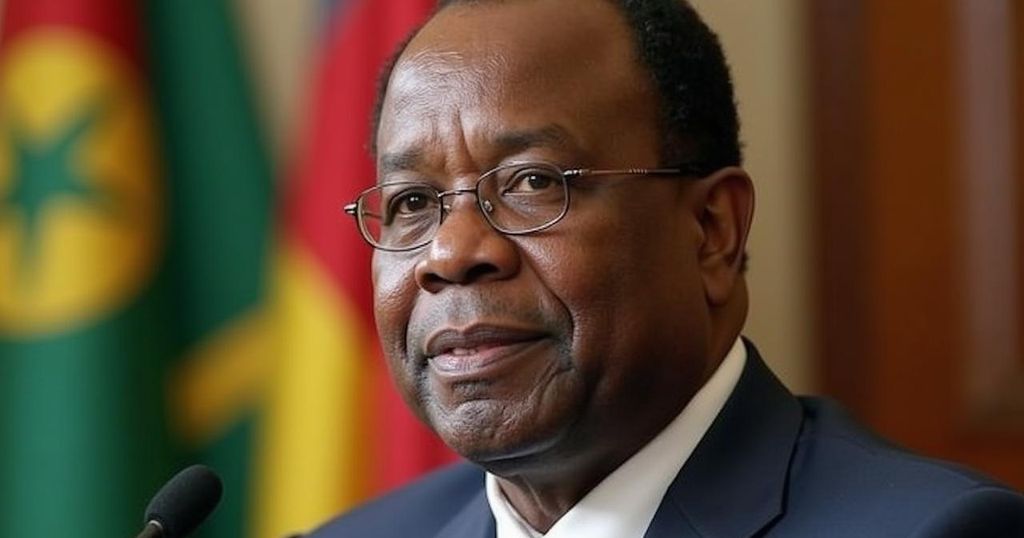Cameroon has banned media discussions on President Paul Biya’s health amid rising speculation over his condition after he has not been seen publicly since early September. The ban, deemed a matter of national security, has faced criticism from journalists and press advocacy organizations as an act of censorship. The government’s stance is that the president is in good health and will return soon, despite concerns regarding political stability due to the lack of a succession plan.
The Cameroonian government has implemented a stringent prohibition on the media regarding discussions about the health of President Paul Biya, who is 91 years old and has not made a public appearance since early September. Interior Minister Paul Atanga Nji issued a directive on October 9, categorizing the media debate surrounding the president’s health as strictly forbidden and establishing monitoring cells to oversee online discourse. The letter, emphasizing the urgency of the matter, indicated that the discussions were deemed as national security issues, with threats of legal repercussions for those contravening the order. President Biya was previously seen at the China-Africa summit in Beijing, and has since missed significant public events, including the United Nations General Assembly and a summit for French-speaking nations in Paris. Government spokesperson Rene Sadi addressed the public’s concern, asserting that President Biya had undertaken a private visit to Europe post-summit and dismissing rumors regarding his health as “pure fantasy.” He assured that the president was in good health and would return shortly. The ban on media discussions has faced criticism for perceived censorship, with local journalist Hycenth Chia asserting that it is only natural for citizens to be concerned about the leader’s state of health. This perspective is echoed by the Committee to Protect Journalists (CPJ), which condemned the censorship, with Angela Quintal of CPJ’s Africa program stating that invoking national security in such an important matter is unacceptable. Observers speculate that the absence of a clear succession plan may lead to further political instability in a region already marred by several recent coups. President Biya has held office for over 41 years, making his tenure one of the longest in Africa, surpassed only by Teodoro Obiang Nguema Mbasogo of Equatorial Guinea.
Cameroon’s political landscape has been heavily influenced by the long-standing rule of President Paul Biya, who has been in power since 1982. His regime has faced various challenges, including political unrest and criticism for perceived authoritarianism, particularly regarding freedom of the press and public discourse. Concerns related to public health and last-minute changes in health protocols for political leaders have raised questions about transparency and accountability. Since President Biya’s last public appearance, speculation has intensified about his health, prompting the government’s stringent measures to suppress media commentary. This incident underscores the overarching themes of censorship and national security concerns that have emerged in many African nations navigating political transitions.
The recent ban on media discussions about President Biya’s health demonstrates the tense intersection of national security and freedom of the press in Cameroon. As the government strives to control the narrative surrounding the president’s well-being, the reactions from journalists and international organizations highlight the widespread concern regarding transparency in governance. The absence of clear leadership succession raises further questions about the future stability of Cameroon and the potential ramifications across the West and Central African regions.
Original Source: www.aljazeera.com






